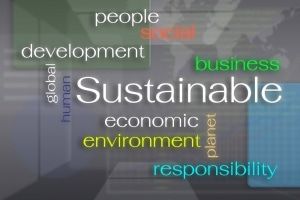8 Things To Consider When Starting Your Sustainable Business

If you’re thinking of starting a sustainable business
but you don’t know where to begin then don’t worry, you have definitely come to the right place. Whether you have had your idea for years or it’s something that has only just come to you, you need to be sure you’re making the right decision. Whilst it may be overwhelming, there are lots of questions you can ask yourself to ensure exactly that. From deciding on what your business is going to be doing to working out how it’s going to make a profit in a sustainable way, the more questions you’re asking yourself the better. With that in mind, here are 8 things to consider when starting your sustainable busines
s:
What Will Your Business Be Doing?
One of the first things you need to consider is what your business is going to be doing, as this will be the basis of your journey as an entrepreneur. Whether you’re going to be offering sustainably made products or you have developed an app that encourages people to think about their energy consumption, you need to clearly plan out exactly what it is your business is going to be doing. The sooner you do this, the easier the process will be.
How Will It Be Sustainable?
When thinking about your business and what they’re going to be doing, you also need to detail how it’s going to be sustainable. Although this will be obvious to you, it may be something you have to explain during pitches to potential investors or buyers.
The best way to approach this, of course, is to come up with a thirty-second elevator pitch that details what your business does and how it helps the environment. For a guide to putting together an elevator pitch , you can visit this site here.
What Are Your Overall Business Values?
Another important thing to consider is your values, as these will help to define your business. Although it may take some time to perfect them, thinking about what you will offer your customers is incredibly important. For a guide to putting together your business’ values , you can visit this handy site here.
How Will Your Business Make A Profit In A Sustainable Way?
When it comes to running a sustainable business, often it’s a little harder to make a profit. Whether you’re paying more for materials or you have a smaller target audience, you need to think about exactly how your business is going to be making a profit and whether or not it’s something you can sustain.
Have You Considered Your Costs?
When it comes to profits, you also need to think about your costs as chances are when you’re running a sustainable business, your costs are going to be much higher. If you don’t know what your exact costs are going to be right away, it might be worth putting a rough estimate together as you’re finding the best suppliers for your business.
Do You Need To Employ Any Staff?
Another important thing to consider when it comes to starting a sustainable business is whether or not you’re going to need to hire any staff. Although this may not be something you do right away, hiring staff is the perfect way to free up your time to work on business growth. Whether you outsource or bring someone on full-time, you will notice the difference in no time.
If you do need to employ staff, here are 8 Payroll Reports Every Business Manager Needs To Know.
How Will You Promote Your Business To Others?
As you start to launch your business, you need to think about how you’re going to promote it to others. When it comes to sustainability, online is often the best place to start.
What Are Your Targets As A Business?
Finally, you need to think about your targets as a business. Whether you’re looking to make a difference in the world of sustainability or you’re looking to make a profit during your first year, setting goals is a great way to keep you motivated. For a guide to setting goals , you can visit this site here.
With lots of important things to consider before starting a sustainable business, you can be sure you’re doing all that you can to protect the environment at the same time as following your dreams. What else do you need to consider? Did we miss anything off of the list? Let me know your thoughts and ideas in the comments section below.


